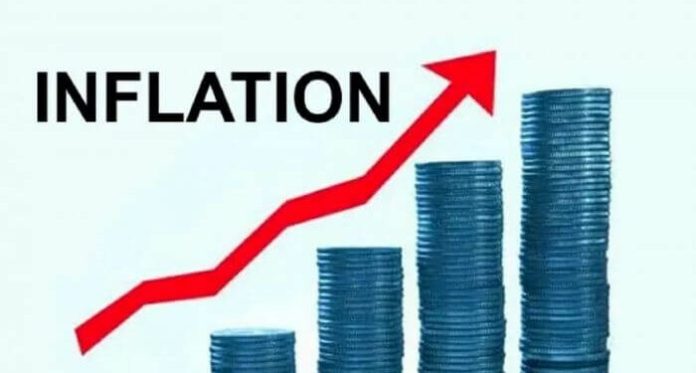Nigeria’s economy is navigating a turbulent period, marked by rising inflation and tightening monetary policies. The Central Bank of Nigeria (CBN), under the leadership of Governor Olayemi Cardoso, has raised the Monetary Policy Rate (MPR) to 27.5% from 26.25%, as part of efforts to stabilise the economy, which has been under strain due to soaring food prices, high energy costs, and recent fuel price hikes.
As of September 2024, inflation has surged to 33.88%, the highest in 28 years, leading to a dramatic rise in the cost of living. This has significantly eroded purchasing power, creating challenges for both consumers and businesses. The factors contributing to this inflationary spike are complex. The naira’s depreciation has made imports more expensive, while the removal of fuel subsidies has driven up transportation costs. Global supply chain disruptions, aggravated by geopolitical tensions, have further fueled inflation.
In response to these pressures, the CBN’s decision to raise the MPR aims to curb inflation and stabilize the currency. While this policy is expected to reduce inflation expectations and stabilize the naira, it could dampen economic growth. Higher interest rates increase borrowing costs, potentially reducing business investments, leading to job cuts and economic slowdown. For consumers, these higher borrowing costs could result in more cautious spending, further compounding the economic challenges.
However, despite these difficulties, opportunities for Nigerian professionals and businesses are emerging. One key strategy for businesses is diversification. By exploring new markets, expanding product lines, and embracing digital transformation, businesses can navigate economic volatility and create new revenue streams.
In the agro-business sector, Nigeria offers significant growth potential. The food industry remains one of the most universally patronised sectors, and agriculture has become a crucial economic driver alongside tech and oil. Innovative farming practices like sack farming make it possible to engage in agriculture without large plots of land. Fisheries, poultry, and general animal husbandry also present viable opportunities in this evolving sector. By partnering with local farmers or focusing on value-added products, businesses can reduce reliance on expensive imports while capitalizing on the growing demand for food commodities.

Another promising investment opportunity lies in affordable real estate. With urbanisation on the rise and the demand for housing increasing, there is significant potential in affordable housing development. Investing in low-cost housing or properties in emerging markets can generate substantial returns as Nigerians continue to seek quality yet affordable homes. Despite high construction costs, strategic investments in these areas can address the housing gap while offering long-term profits.
The retail sector is also undergoing a transformation. With the high costs of maintaining physical storefronts, many shop owners dealing in clothing, shoes, and other non-perishables are pivoting to online sales. The shift to e-commerce allows businesses to reduce overheads, expand their customer base, and operate more flexibly. This trend aligns with the broader global shift toward online shopping, offering an opportunity for businesses to embrace digital marketing and social media advertising to reach customers more effectively.
As traditional retail spaces become increasingly unaffordable, many entrepreneurs are exploring the option of working from home or establishing virtual storefronts. This not only helps reduce operational costs but also provides the flexibility to scale business operations. By leveraging online marketplaces, social media platforms, and e-commerce websites, businesses can thrive without the high costs associated with physical stores.
For business owners, embracing a digital transformation strategy is essential. The use of digital platforms for marketing, sales, and customer engagement can enhance visibility, broaden reach, and increase profitability. Additionally, a work-from-home model enables entrepreneurs to streamline operations, reduce costs, and improve their work-life balance, aligning with the growing global trend of remote work and digital entrepreneurship.

While Nigeria’s current economic challenges may seem daunting, they also present opportunities for those willing to innovate, adapt, and embrace change. Professionals and businesses that focus on diversification, digital transformation, and strategic investments will be better positioned to thrive in the face of ongoing economic uncertainties.













